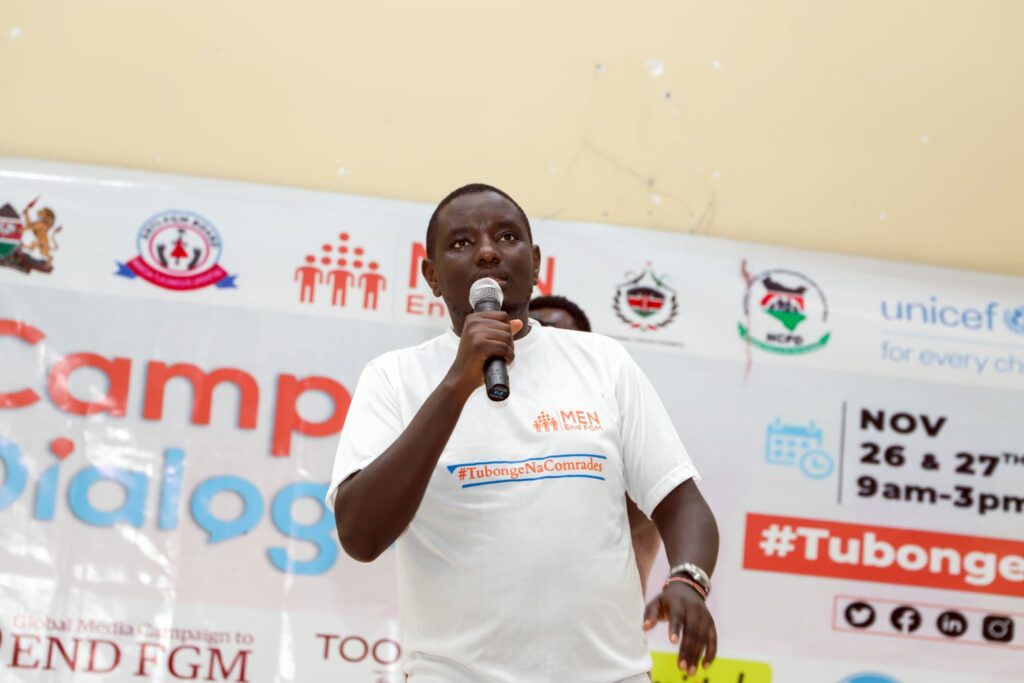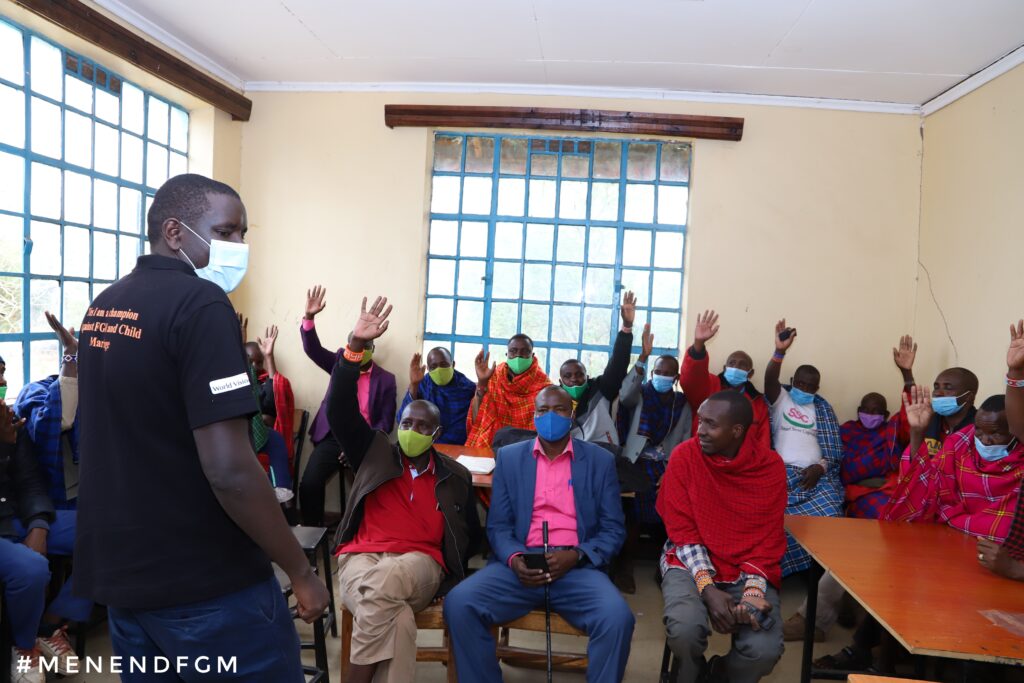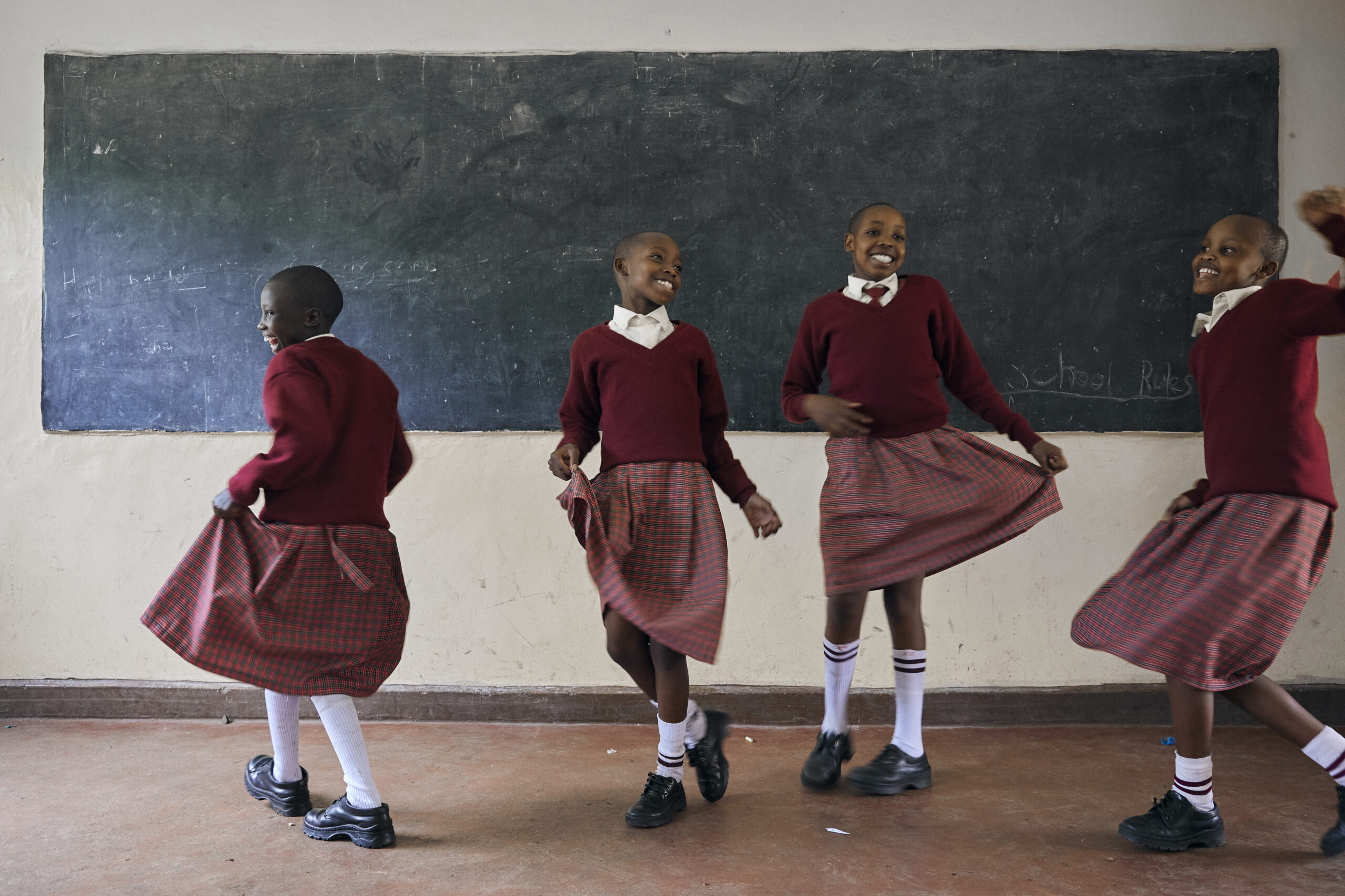YOUR PRIVACY
To enhance your experience with our site, many of our web pages use “cookies” and shopper ID’s. Cookies are text files we place in your computer’s web browser to store your preferences. To find out more, read our updated privacy policy.
“We don’t have to wait for the government. We don’t have to wait for NGOs. Gender equality begins with us.”
– Tony Mwebia
Founder and Executive Director, Men End FGM
Tony Mwebia
Tony Mwebia, founder and executive director of Men End FGM, is an award-winning SDG 5 advocate dedicated to ending female genital mutilation (FGM) through grassroots advocacy centered around engaging and creating male allies.
Tony’s journey began in 2012 while volunteering with HIAS Refugee Trust of Kenya to support refugees living in Nairobi. He was assigned to a pilot project created after the Kenyan government’s recent passage of the Prohibition of Female Genital Mutilation Act. Though at the time Tony says he knew little about FGM, it became part of his role to educate and establish dialogue with refugees about the detrimental effects of the practice.
He began to hear stories about the harm FGM was causing entire families. Men shared how their wives suffered from pain, infections, blood loss, obstetric fistula, and other major birthing complications. One man shared that he lost his wife and child during birth due to complications caused by FGM.
It was a pivotal moment for Tony. “Why is it that I have not seen men engaged in this conversation before?” So in 2013, he started an online movement, #MenEndFGM, to raise awareness about the absence of male allies and to challenge activists, NGOs, and governments to include men and boys in their work to end FGM.
Why does he believe it’s so crucial to include men and especially boys? Tony explains that in many of the communities that practice FGM, men are the custodians of culture and the main proponents of continuing the traditional practice, so if boys aren’t educated at an early age about how harmful FGM is, they could very well grow up to become men who perpetuate the practice. He often says, “not involving men in the fight against FGM is like a doctor treating symptoms of a disease and ignoring the disease itself.”
What started as an online movement in 2013 was expanded into a full-fledged organization in 2019. Men End FGM has also taken their campaign offline, establishing community dialogues to educate young boys to elders, farmers to chiefs, and everyone in between. They encourage men to see FGM not as merely a women’s issue, but as a form of gender-based violence that they too have a responsibility to end. Another key component of their work, Tony shares, is combatting the toxic masculinity underpinning the patriarchal nature of societies that practice FGM.
Tony’s success in this important work has been recognized widely. In 2019, he was even named a National Hero by President Uhuru Kenyatta. A wise piece of advice Tony shares for all to consider: “We don’t have to wait for the government. We don’t have to wait for NGOs. Gender equality begins with us.”



